Leading Australian cannabinoid clinician and educator, Dr Teresa Towpik sits down with CBN Host, Chloe Jean to discuss her journey with Cannabis.
Dr Towpik is one of the first doctors in Australia who dived into medical cannabis and educated herself to become of the most sought-after speakers on the topic across the country.
Teresa went on to create Medihuanna, an educational organization specialised in educating medical professionals about medical cannabis.
In this fascinating interview, Dr Towpik shares her story and opens about how she recently turned to cannabis treatment herself.
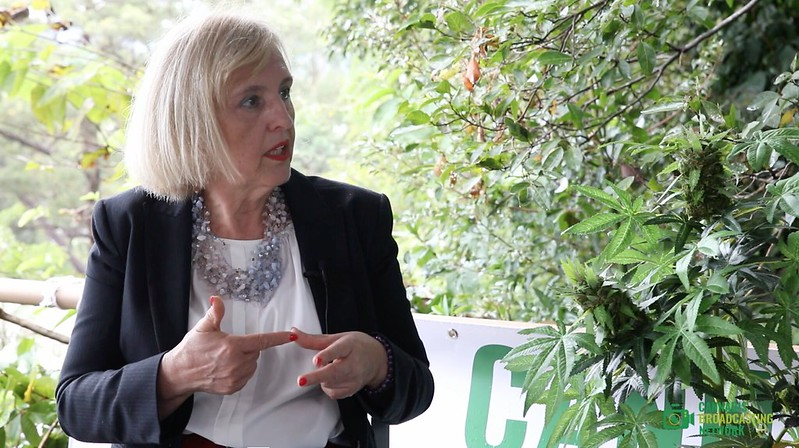
If you prefer to read, below you’ll find the transcript of the interview:
Hello and welcome back to Cannabis Broadcasting Network.
We are chatting to Dr. Teresa Towpik today, who is presenting at the Nimbin Mardi Grass on the last day, Sunday.
Teresa, thank you very much for joining us today.
Dr Teresa Towpik – Background
Can you just give our viewers a brief background of yourself and your current projects?
OK, so as you said, my name is Dr Teresa Towpik, and I used to be a general practitioner in Australia since 1993.
I originally graduated in Poland and then in I practiced, typical conventional general practice medicine.
But in 2016, I came across cannabis.
I’ve heard that it was going to be legalised for medicinal use.
And then I became very interested and curious about it and started my own research.
And then I just realised how important this plant is.
But when I came across it in 2016, there’s actually a bit more to that story.
So it was a weekend in January and I was in the meditation retreat with some famous entheogen and at an end of the day we did a bit of sharing and one of the participants said, you don’t choose your plant.
The plant would choose you when the time is right.
And then following day, I came back home and my son, Pavel told me, oh, Cannabis is going to be legalised for medicinal use.
And I felt shivers going down my spine.
And I thought, oh, is this my plant? Is this my teacher?
And somehow I had that voice.
The drive would lead me to learn about it. I just couldn’t ignore it.
So I become very curious. And I was reading quite a bit. It was quite chaotic and difficult.
And then I decided, but I need more structured learning so I founded Medihuanna, which is an organisation devoted to deliver science-based medical cannabis education.
And that’s what I’m doing now.
Teaching cannabis doctors and being a cannabis patient
I’m teaching doctors how to prescribe cannabis properly and spreading awareness about this absolutely amazing plant, which is my plant on every other level as well.
It’s not only my teacher, but also it’s a plant that is helping me with my medical condition, which is recurrent metastatic breast cancer.
Thank you, Teresa.
And I know this is something that you’ve personally journey through for a little while now and you feel the time is now, right.
To actually bring this out to the public and start having this discussion?
Absolutely.
So I’ve started writing my book about my cancer journey in 2017.
I think we are always guided. You only want to listen to the universe.
So how I started writing that book.
It was early October morning in 2017 and I just woke up and I was in the transition state between awake and asleep.
The voice came into my head what cancer really meant for you?
And the next word was ‘teacher’.
Yes, and it was my teacher. So I jumped out of bed. I went into my study, opened a computer, opened word, and typed Cancer my greatest Teacher Doctor’s story of love, healing, and inspiration and I wrote that book within six weeks with a basic manuscript came.
Then I found some mentor who told me ‘I want to know more about your life.’
So from this book just about the cancer I’ve written a book, about my life, about my spirituality, about my connection with my soul, with my divine, and the importance of that connection in our healing.
And the book was ready to be published in 2019.
But then in May, I discovered breast cancer came back.
So somehow I put this book on the shelf. I couldn’t even read it. I couldn’t do anything about it.
I just felt like, no, I’m not ready to think about it.
I’m going to my own space. I’m going into my own healing, and I will approach that healing my own way.
But the last few months, the voice started coming through me again.
And said, you’re ready now, you can talk about your journey, about your healing.
And I’m hoping that sharing this kind of story on healing spirituality coming from a very conventional Doctor, I’m hoping to inspire other people who might be struggling, who might be suffering.
But there’s always some guidance by something within us that we are capable of healing and enjoying our life,
even if we are going through such a harsh diagnosis, you know.
Absolutely, and I think that’s a very interesting point you’ve made with a diagnosis, with such a heavy outcome, potentially heavy outcome, there’s a lot of mental processing that needs to take place within that person as well.
And I think it’s very interesting that you took that time and pulled back and actually processed internally, both with writing the book and then secondary from that point.
When receiving your diagnosis did being a medical practitioner aid or hinder the mental processing?
So my next question is, when receiving your diagnosis, did being a medical practitioner aid or hinder the mental processing of that diagnosis?
Look, when you face this kind of diagnosis, doesn’t matter who you are, whether you are a doctor, politician, king, queen doesn’t matter, you are just as vulnerable as any other person.
So when it comes to my approach to it, I don’t think like a doctor here.
I am processing it like another human being and the biggest part of it is my spirituality, my soul connection.
I feel like there’s a message in everything.
And the cancer came to me for a reason, so I don’t try to fight it.
I don’t hate it. I’m working with it.
It’s my tough guru.
It’s flogging me and telling me you better behave, you know … In a level of acceptance has come from that as well, accepting the things you can’t change and just working with what you can.
What treatment options did you research or consider?
What processes did you take after your diagnosis and what treatment options did you research or consider?
Look, because I’m a conventional Doctor and I believe in integration.
And I but that was my approach at the original diagnosis in 2001, I went through all the chemo, radiotherapy and so on.
And I think when you choose your options, you need to really connect with your heart.
For some, it could be just chemotherapy and radiotherapy.
And it’s OK if it works for you.
For some, you may go deeper. Some people may choose natural therapy, whatever you choose.
It’s perfectly OK.
I believe in integration so I said OK, I’m going to take advantage of modern medicine that gives me some baseline.
But at the same time, as you know, I have been at the time 2019 I was prescribing cannabis, I think it’s a logical kind of thing to do.
Absolutely .. to implement cannabis as well.
But the whole process was very confusing in the beginning.
I was pushing high doses of cannabis, high doses of conventional, and I felt quite unwell.
So that was months and months of going through different processes.
Until I found my way and my way is balance.
I’m taking a bit of conventional I’m taking smaller doses of cannabis.
But I believe that the most important, the healing part of you, is your heart.
Yes, your soul.
It’s your spirit.
Because we also hear about so many cases of so-called miraculous healing that people don’t do anything they’ve given two or three weeks to live, and then all of a sudden, there’s a complete transformation.
So I believe if we know how to connect with our soul, we are able to heal, but eventually, we have to die anyway.
But to me, death is not a failure.
To me, death is a transition. It’s part of life, in fact. Death only exists on the physical level.
That, you know, your body will disappear your mind, your personality will disappear.
But on a deeper level, I believe there is no birth no death.
No, that it’s simply a journey in transition.
And I believe that we are these multi-dimensional, vibrational beings who occasionally decide to have a human experience.
That’s right.
For the sake of evolution and learning and going further.
I mean, death is scary.
But at the same time, I believe that it’s going to our ego, our personality but there’s nothing to be afraid of.
Cannabis medicines have a spiritual development component to them as well?
So, do you feel that cannabis medicines have a spiritual development component to them as well?
Absolutely. I definitely think that cannabis is one of these sacred plants, teacher plant.
I can go as far as saying that it is basically a divine gift to humanity we use it for thousands of years.
And somehow the last hundred years we sort of managed to disrespect this divine gift that has so much to offer, it guides us in our spiritual, mystical experiences.
But also we can make clothes, we can eat it.
We can build houses and then we can have a nice party.
Yes. What’s wrong with entertainment?
Exactly.
So it’s a wonderful plant, sacred plant. But we need to treat it with respect.
It needs to be treated … when you start abusing the plant when you start thinking too much of it and when your approach is just to get that entertaining part the plant can’t be disrespected, you have to treat it with full respect like sacred crystals.
Because we call it cannabis, but I kind of like the word ‘Marijuanna’.
I really love it, even though it has this bad connotation, but it has to me this kind of feminine, divine, feminine energy, something wonderful about its, feminine healing.
So that’s what it means for me.
It’s a teacher plant, a sacred plant that can open up our horizons.
Our consciousness, our awareness, and now the case of diagnosis, whatever time I have on this Earth to me, my main goal is opening up my consciousness, my awareness connecting with people and expanding.
That is amazing.
And it’s getting wonderful guidance from this plant.
And that’s the thing.
I think it spiritually guides us in our spiritual development as well, which is one aspect that we haven’t really looked into in the medical component is the spiritual development.
And that’s what I feel is missing in modern medicine.
We become too algorithm-oriented, procedure-oriented policies, paperwork, red tape, and so on.
But how about that human-to-human interaction, that healing, but heart to heart.
And I think that modern medicine became a little bit too robotic too automatic and I know these randomised
clinical trials and so on.
But they don’t really give us the answers.
What I believe that we need to bring more soul more spirituallity into modern medicine and start accepting the part of us, which is responsible for healing the transcendental, the invisible part.
We can’t really touch it feel it, measure, but it’s there.
And it’s the most important part.
Exactly right, accept that it’s there and nurtured in the way that it requires to be nurtured .. and nurture it in a way whatever we feel comfortable with, it could be for some people would be going to church with some people may be playing with rosary for some could be going to loot and drinking water with whatever spirituality in comes in so many ways.
And it’s so wonderful, but it’s so diverse and the universe speaks to us in so many ways.
Dreams are a very important part of my life…
And for example, dreams are a very important part of my life.
And ahh, what happened .. My throat,
Do you want a drink of water Teresa? Maybe there’s probably some emotion …
That’s OK.
That’s that would be quite normal as well, because we’re actually speaking about a lot of things at this point also one the examples, when I was driving in May 2018, because first I have one scan and after that, I needed more scans so I was driving for my C.T. scan brain, you know, chest, abdomen.
I was just driving and the bus was just past me and there was “zero deaths to breast cancer”.
And thought thank you, and if you are open to that, the messages will start coming to you in the form of dream or it could be a poster or just that thing on the bus or someone telling you something so it is very important to be open and ready to receive and have your vibration.
And also I’ll share another dream with you.
Just a month before, when I found out that cancer was back,
I had this dream.
It was April 2019 I was suspended in this dark space. I felt very comfortable it felt like going back into the womb.
And there was this female voice in perfect English.
She said, When you have a problem, don’t focus on the problem, just raise your vibration.
It was such a clear message, which I understood, and a month later what it meant amazing, amazing Teresa.
What were the the benefits of incorporating medicinal cannabis into your treatment?
So let’s move back a little bit more to the treatment of with the treatment of medicinal cannabis, what were the benefits of incorporating medicinal cannabis into your treatments in regards to symptom relief, or how did
it help you in particular?
Look, I think, first of all, that’s was most important, the spiritual part.
But what cannabis does, it helps my appetite because initially I completely lost appetite, I lost 24 kilos in a short period of time.
And I would struggle to eat, even though at the time I was on high doses of cannabis.
But I think I was thinking probably too much.
So I got some huge appetite suppressant Klonopin.
And so initially to suppress my appetite, I’m not sure if it was maybe conventional, could be Femara or anything, but was, you know, a bit of confusion here.
But eventually really improved my appetite.
I managed to gain a bit of weight again, which is good. I’m in a healthier range, also sleep, sleep is amazing.
It really helps you to repair the body as well.
But also another observation that I am making.
But every so often I take a cannabis break and during that time, my hot flashes are incredible.
At night, I can wake up four times per night and having to change my pyjamas and it happens when I don’t get cannabis for a few nights.
But when I start taking it again, it goes so I think a great improvement on appetite, general well-being.
I also feel that the ability to focus more and being driven to do I think it drives me to speak my truth,
to be authentic and to say what I can do and what I can’t do.
I used to be such a Mrs Yes all my life with detrimental effects for me sometimes.
But now I’m capable of saying No when I mean no and capable of saying yes when I mean yes.
I think it helps me on many levels, but my physical path is definitely appetite improvement.
I am getting back to healthy body weight, the sleep improvement, and hot flushes.
Cannabis ‘holiday’
And we were talking .. you said about a cannabis holiday before.
So that’s when patients have cannabinoids regularly, we have a quick break from the treatment, the 24 to 48 hours, which allows the endocannabinoid to reset and for the patient to respond back to their cannabis medicines with slightly lower doses sometimes.
Did you find when introducing the cannabis you had side effects or lethargy or in that initial phases?
Was it unexpected or side effects or things that you weren’t comfortable with when introducing or adding medicinal cannabis into your regime?
Look, because I was already prescribing cannabis and I was teaching about cannabis, you know when I found out I had no hesitation to start cannabis.
I think it was a logical thing to do.
And did you find when introducing the cannabis you had side effects or lethargy or in that initial phases?
In the initial phase, yes, the first few months were really quite terrible.
Yes, I had lots of side effects, but it was really confusing because I didn’t know what was going on … looking back.
I know we now know it was Femara, one of the conventional.
Yes, because when we stopped it when we started the game a few months later.
Oh, it was horrible.
So what I was experiencing was sudden, really horrible abdominal pain.
Like if someone kicked me in the gut, then I would go to the toilet and really painful defecation. And lots of feeling, lethargy, fatigue and just feeling unwell all the time, quite often, I would have periods of despair.
I also experienced really going down so low in my mood. And I did experience sort of almost going to hell.
I would say huge despair, anxiety, not knowing.
You know, sometimes I could feel what’s going to happen to me,
but eventually, because I also meditated a lot.
I meditate about three hours per day I do breathing exercises, I do a lot of other things.
But eventually, I think I’m you know, it’s a happy balance. I think I am on the right track.
But also I’m accepting that I might be gone any time.
And that’s OK for me.
I think acceptance is a very enduring kind of no resistance pathway.
And it’s good to see that your treatments don’t just include medicinal cannabis.
They can actually contribute a wide range of lifestyle choices as well.
Like, meditation is huge for me. I also love that vibration thing.
So now my heroes, are like Esther and Jerry Hicks are my heroes.
I listen to them all the time Abraham teaching.
I listen to Joe Dispenza, I listen to Wayne Dyer to all of these people that really help me to get deeper understanding.
Has cannabis in medicinal cannabis been the magic bullet?
And has cannabis in medicinal cannabis been the magic bullet in regards to this circumstance, Teresa?
No, I wouldn’t say it’s a magic bullet.
I think it’s a wonderful additional thing, but I think it’s a variety of different things for me.
So it’s not my magic bullet.
And that’s what I do find a lot with patients as well.
We do generally see fantastic results incorporate as an adjunct treatment.
And I think your story is explaining that quite clearly as a patient of medicinal cannabis, what would you tell other people who were considering using this treatment?
I think, first of all, allow yourself to be guided by a health professional, by understanding, a kind health professional who is someone you feel really very, very comfortable with and giving guidance, someone who knows about it.
Like, you know, for example, you know, PlantMed you’re doing a wonderful job actually you are the people who are looking after me.
It’s been a personal journey.
So I am very grateful for that guidance and, you know, allowing people to use my medicine and so on.
So I think we do need doctors we do need people who know how to go about it.
I think it’s important to get guidance and be humble enough to reach out for help and just going back into so patients who are considering this treatment, you’ve got an adjunct lifestyle.
Dietary changes
So we’ve got meditation.
Do we have any dietary changes at all as well as obviously incorporating medicinal cannabis?
Diet could be very confusing because some people will tell you, go Paleo, go vegan …
A lot of people getting mixed information.
I feel its a big balance.. I do enjoy a glass of prosecco every so often, I do enjoy getting a burger and stuff like that.
In general in my diet is good, mostly plant-based and a little bit of meat, but I also feel it’s about joy of life. Going out and I don’t feel guilty about having pizza or something like that.
I think it’s just about on the soul level.
You experience life as it comes.
So I’m reasonable, but I am not too strict, when you become very strict about diet, it’s another stress.
It adds another stress and pressure that you just don’t need.
Yes, most of the time, you know, if we work really well on our diet, it allows us those treats and those rewards as well, because it’s about socializing, about community, about sharing even if it’s pizza and beer.
I know you’re about to present here at the Nimbin Mardi Grass.
Do you see cannabis as an intensive treatment or a lifelong supplement?
I think it’s a lifelong, lifelong supplement.
I think humanity would benefit so much if it’s more available, I am happy to see CBD being down scheduled now.
And I think we should be able to use it in any form we can do.
Juicing, we can make salads, we can feed our cows with cannabis, and so on.
I think you might really benefit from it.
Maybe even bring the communities back together.
Do you feel disclosing medicinal cannabis use to your treating medical team is important?
It is important.
And now when I teach doctors, our college accredited courses when I do the introduction, I say I’m a clinician, but I’m also a cannabis patient.
So I always disclose it now, I started doing this.
Advice from Dr Teresa Towpik to other cancer patients
And one last question inclose.
For anyone watching at home with a diagnosis similar to yours, what are your suggestions to them?
Embrace it.
Embrace it on many levels, maybe.
Don’t be scared of it.
It can really take you to another level of consciousness.
In fact, you can turn this into a very rewarding experience, just as crazy as it sounds.
Wonderful Terasa.
I’ve always looked up to you and your attitude towards this entire journey, but even more so with the light
of what’s come through recently.
I think what you’re doing now is so incredibly important and acknowledgement of the spiritual development of a human when they receive this diagnosis is important as well it’s essential.
So I think that’s what we need to find who we truly are.
We are not this body.
We are not this head, we are of this mind.
We ask you to be put every so often.
Come here to show to express humanity.
Thank you, Dr Teresa Towpik.
Thank you very much for your time.
My pleasure.
My absolute pleasure.
Thank you.
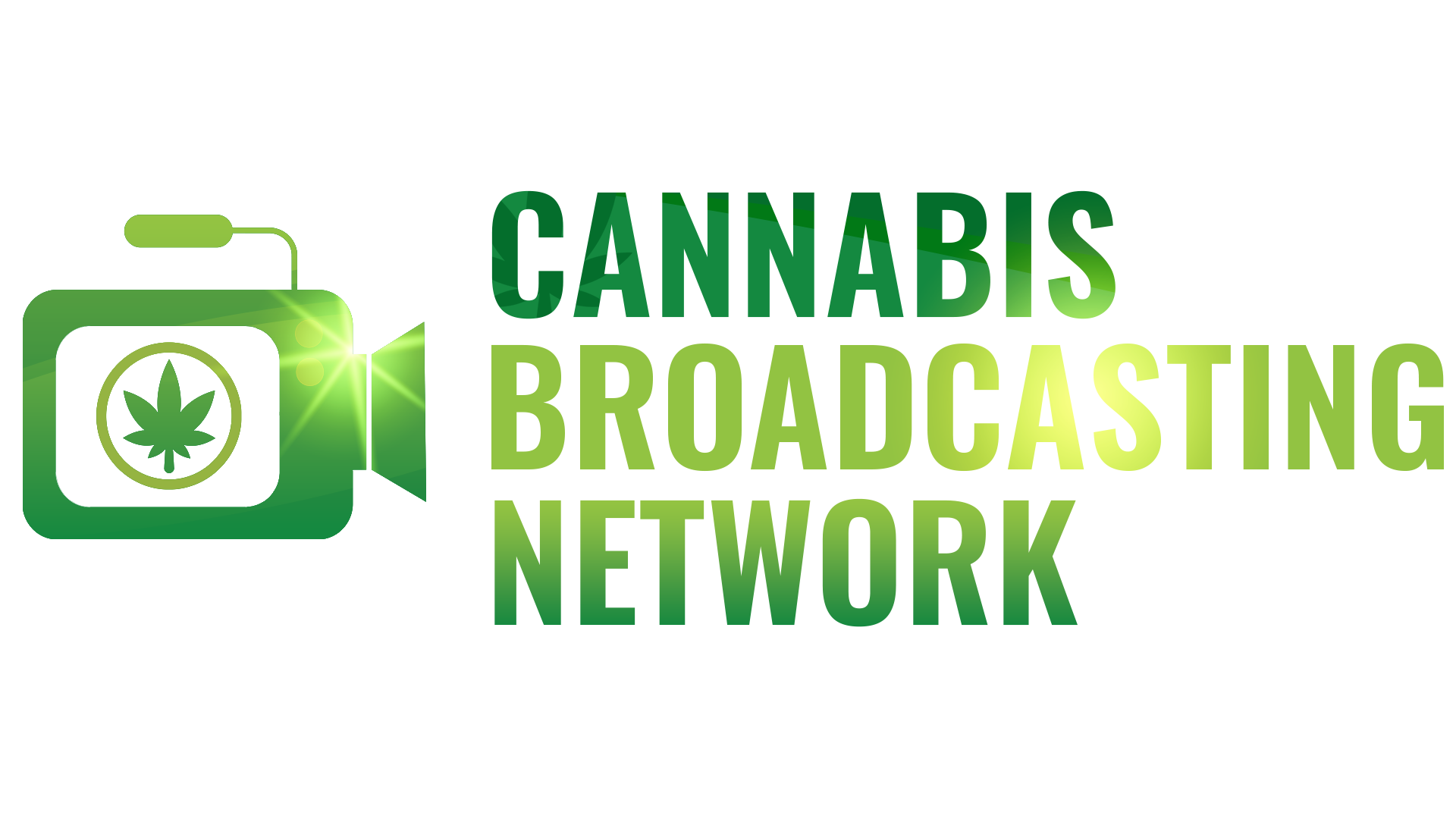
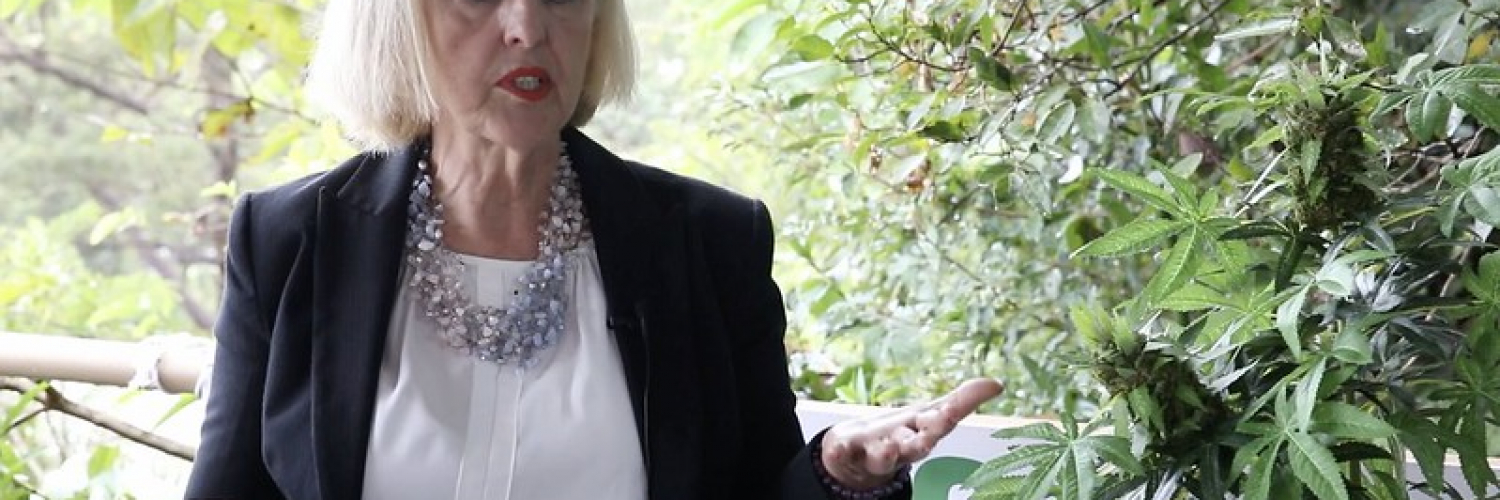
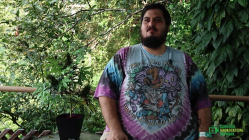
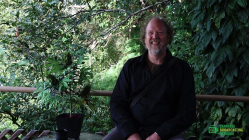
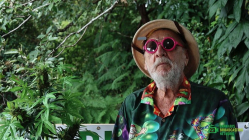
Add comment